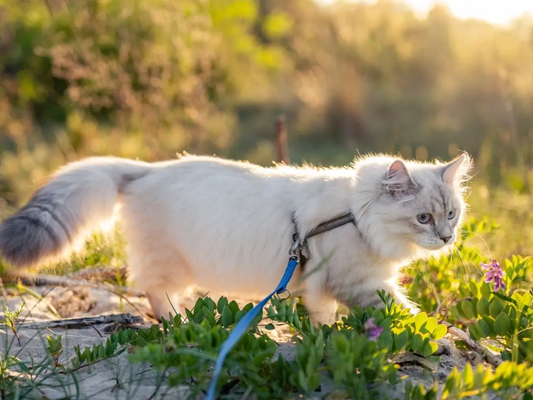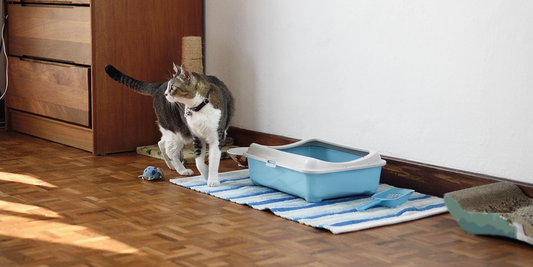Introduction
In recent years, kidney disease in cats has become increasingly prevalent, posing a significant health concern for feline owners worldwide. Understanding the intricacies of this condition is crucial for early detection, effective management, and ensuring the well-being of our beloved pets.
The Importance of Kidneys in Cats
Kidneys play a vital role in maintaining a cat's overall health and well-being. They are responsible for filtering waste products from the blood, regulating electrolyte balance, and producing hormones essential for various bodily functions.
Renal Function Assessment
To assess renal function in cats, veterinarians often rely on blood tests to measure levels of blood urea nitrogen (BUN) and creatinine. Additionally, urine tests can provide valuable insights into the kidneys' ability to concentrate urine and filter waste products effectively.
Signs and Symptoms of Kidney Disease in Cats
Identifying the signs and symptoms of kidney disease in cats is crucial for early intervention and management. Common indicators include:
- Increased Thirst and Urination: Cats with kidney disease often experience excessive thirst and urination as the kidneys struggle to concentrate urine.
- Weight Loss: A gradual loss of weight despite a consistent appetite may signal underlying kidney issues.
- Poor Coat Condition: Kidney disease can manifest in a dull, unkempt coat due to decreased grooming habits.
- Lethargy and Weakness: Cats with kidney disease may exhibit reduced energy levels and overall weakness.
- Vomiting and Diarrhea: Gastrointestinal symptoms such as vomiting and diarrhea can occur in advanced stages of kidney disease.
Early Detection is Key
Regular veterinary check-ups are essential for detecting kidney disease in its early stages when treatment options are most effective. Be vigilant for subtle changes in your cat's behavior and consult your veterinarian if you notice any concerning symptoms.
Diagnosis and Treatment Options
Diagnostic Procedures
Diagnosing kidney disease in cats typically involves a combination of blood tests, urine analysis, and imaging studies such as ultrasound.
Treatment Approaches
While kidney disease in cats is not curable, various treatment approaches aim to manage symptoms, slow disease progression, and improve quality of life. These may include:
- Dietary Management: Prescription diets low in phosphorus and high-quality protein can help ease the workload on the kidneys and minimize further damage.
- Fluid Therapy: Subcutaneous or intravenous fluids may be administered to maintain hydration and support kidney function.
- Medications: Your veterinarian may prescribe medications to manage symptoms such as hypertension, nausea, and anemia associated with kidney disease.
- Regular Monitoring: Routine check-ups and monitoring of kidney function through blood and urine tests are essential for assessing treatment effectiveness and adjusting management strategies as needed.
Preventing Kidney Disease in Cats
While some risk factors for kidney disease in cats, such as age and genetics, are beyond our control, there are steps we can take to promote kidney health and reduce the risk of disease development:
- Provide Adequate Hydration: Encourage your cat to drink plenty of water by providing clean, fresh water sources and incorporating wet food into their diet.
- Regular Veterinary Care: Schedule annual check-ups with your veterinarian to monitor your cat's overall health and detect any underlying issues early on.
- Maintain a Healthy Diet: Opt for high-quality, nutritionally balanced diets tailored to your cat's age, activity level, and specific health needs.
- Avoid Nephrotoxic Substances: Be cautious of medications, plants, and household toxins that can potentially harm your cat's kidneys.
FAQs (Frequently Asked Questions)
What are the common causes of kidney disease in cats? Kidney disease in cats can have various underlying causes, including aging, genetic predisposition, infections, urinary tract obstructions, and certain medications.
Can kidney disease in cats be cured? While kidney disease in cats is not curable, early detection and appropriate management can help slow its progression and improve quality of life.
How can I support a cat with kidney disease at home? Ensure your cat has access to clean water at all times, feed them a balanced diet recommended by your veterinarian, administer medications as prescribed, and monitor their condition closely for any changes.
What is the life expectancy of a cat with kidney disease? The life expectancy of a cat with kidney disease can vary depending on various factors such as the severity of the condition, response to treatment, and overall health status. With proper management, some cats can live for several years after diagnosis.
Is kidney disease painful for cats? In the early stages, cats with kidney disease may not exhibit overt signs of pain. However, as the condition progresses, they may experience discomfort associated with complications such as urinary tract infections and high blood pressure.
Are there any alternative therapies for managing kidney disease in cats? Some cat owners explore alternative therapies such as acupuncture, herbal supplements, and dietary modifications. While these approaches may offer supportive benefits, it's essential to consult with your veterinarian before implementing any alternative treatments.
Conclusion
Understanding what you need to know for kidney disease in cats is essential for providing optimal care and support for our feline companions. By familiarizing ourselves with the signs, symptoms, and treatment options available, we can empower ourselves to make informed decisions and ensure the well-being of our beloved pets.








